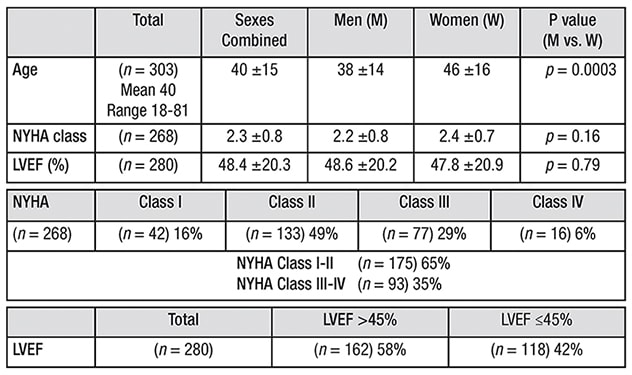June 01, 2019
Myocarditis is a potentially fatal inflammation of the myocardium that typically develops secondary to viral infection, often in young, seemingly healthy men. Its prevalence worldwide is estimated to be 0.5 to 4.0 percent, with reports of biopsy-proven myocarditis occurring in up to 16 percent of adult patients who have unexplained nonischemic cardiomyopathy.
As an important cause of acute and chronic heart failure, myocarditis is challenging for clinicians to manage because it is characterized by an unpredictable and potentially life-threatening course of disease. Symptoms range from flu-like illness to dilated cardiomyopathy and heart failure. Currently, no screen or biomarker exists to help stratify the level of risk that patients with myocarditis may be facing to guide clinical decision-making and treatment.
First myocarditis biomarker
An international research collaboration led by investigators at Mayo Clinic in Jacksonville, Florida, has published results that identify the first biomarker for myocarditis, offering a measure of cardiac inflammation: the blood protein known as sera soluble ST2 (sST2).
In the largest study of its kind, (n=303), results show that, compared with healthy controls, men ≤ 50 years of age with confirmed or suspected myocarditis had significantly elevated levels of sST2. This biomarker relationship did not hold for women of all ages or for men > 50 years. The study was published in the Journal of the American Heart Association in January 2019.
Correlations to NYHA heart failure class
Enrollment data for largest myocarditis biomarker study

Enrollment data for largest myocarditis biomarker study
To determine an association between sST2 and myocarditis severity, the study correlated patients' NYHA class to circulating sST2 levels in blood tests.
To determine an association between sST2 and myocarditis severity, the study correlated the patients' New York Heart Association (NYHA) class to circulating sST2 levels in blood tests. Results showed that men ≤ 50 years of age in NYHA classes III-IV (indicating heart failure) expressed significantly higher sST2 levels than those in NYHA classes I-II. This association of sST2 level and NYHA class was not seen in men older than 50 or in women.
Says the Mayo study's lead researcher, DeLisa Fairweather, Ph.D.: "The sST2 levels are biomarkers in the sense that they are a diagnostic tool helping physicians know who is most at risk of sudden death, or for progressing to advanced disease. This knowledge is something they haven't had before — and it now enables them to intervene with lifesaving measures."
Clinical implications
Dr. Fairweather is a specialist in the role of sex on heart health, and she sees three key implications of the study:
- Sera sST2 is a new biomarker that may be added to select cardiovascular work-ups to improve heart failure diagnosis and management.
- When sST2 is used, results must be interpreted according to sex and age.
- Sera sST2 expands diagnostic value beyond the natriuretic peptide family of biomarkers.
Elevated sST2 is known to predict mortality from acute and chronic heart failure and is approved by the FDA for evaluating select heart conditions. But it had never before been tested in a large-scale study of patients with clinically suspected and biopsy-confirmed myocarditis. Most importantly, sST2 levels had never been evaluated in patients with myocarditis in the context of sex and age.
Sex differences
Prior to the current study, sST2 levels had never been evaluated in patients with myocarditis in the context of sex and age. But Dr. Fairweather team's previous work with mouse models of myocarditis showed a sex skew toward males being more prone to developing certain kinds of inflammation and poor heart function. The team's mouse studies also demonstrated that increased testosterone significantly raised levels of sST2, yet the female sex hormone estradiol did not. These findings suggested a role for testosterone in human myocarditis.
Says the study's co-lead author, Katelyn A. Bruno, Ph.D.: "Because of our lab's specialty in studying sex differences, we had the foresight to study myocarditis by sex and age, and when we divided out the results by men and women, we found that females' level of sST2 had no relation with severity or progression of disease."
Women and myocarditis
The team has now developed a large international research network — nearly 1,000 patients with myocarditis and 3,000 patients with dilated cardiomyopathy — from which to develop insights that can be translated rapidly to patient care, informing women's prognoses about the course of myocarditis, as well as that of men older than 50 years.
The goal, Dr. Fairweather says, is to develop a more powerful suite of diagnostic tools and lifesaving management approaches for myocarditis. "All this might lead us to discover more biomarkers and treatments for this disease so we can intervene before it progresses to heart failure."
For more information
Coronado MJ, et al. Elevated sera sST2 is associated with heart failure in men 50 years old with myocarditis. Journal of the American Heart Association. 2019;8:1.